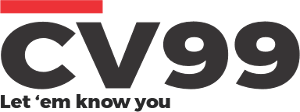Writing a professional CV is something that most of us dread, but something we all eventually have to do. You may understand that you need to highlight your “hard skills,” which are the credentials and technical skills which you’ve acquired through education, but what about “soft skills?” In this informal categorization system, soft skills are the things that make you, you. They are the positive attributes you possess which could be seen as potentially beneficial to your job performance and, therefore, the company. Remember: an employer is looking for the “whole package,” and some of your soft skills could make you stand out from the crowd. They can even make your resume rise to the top of the pile in the HR’s applicant tracking software, provided the skills relate to the job.
The importance of Soft Skills
Soft skills are the types of character traits like tenacity or leadership that we develop throughout life, and many people have some of these positive attributes because most of us have gone through times of adversity. Contrary to popular belief, many interviewers consider soft skills just as important as technical hard skills. According to a Career Builder survey, 77 percent of employers believe this to be the case. The truth is that hard skills may get you in the door to be interviewed, but soft skills could get you the job offer.
What Soft Skills employers look for
Job recruiters look for soft skills like leadership, dependability, work ethic, innovation, and the ability to think outside the box, among many others. These skills indicate to them that a prospective employee will perform well on the job, having the ability to solve complex problems and interact well with co-workers. So how can you demonstrate some of these attributes in a resume or, further down the line, job interview?
Brainstorm about some of your Soft Skills
Sit down with a piece of paper and a pen and consider carefully your employment and/or volunteering history. Think about how you demonstrated unique skills in the past and write these instances down. Having laid out some soft skills above, can you think of any clear examples that show you have these positive character traits? If you really can’t think of much, think about spinning a few things to show yourself in a positive light. not lying, but showing how a particular occurrence in your past demonstrated a certain skill in an unconventional or unexpected way.
Supercharge your CV with Soft Skills
Having established some of your soft skills, you’ll want to give concrete examples of these attributes in action. Remember, this is all about how these skills could improve your performance in the potential job and help the company as a whole, so examples of your soft skills being put to use in one of your old jobs or a volunteering position are best. For example:
- To demonstrate leadership: Mention if you started and lead something like a new mentorship program at your old job. Even if you started a business book club, this shows initiative and leadership. If you can’t think of anything else, perhaps you started and ran a successful club back in university days?
- To demonstrate communication skills: Talk about a successful presentation you made at one of your previous jobs. Even something as simple as writing a coherent memo could give you points in this category.
- To demonstrate big thinking: The ability to think outside the box and problem solving go hand in hand. Being able to solve problems saves everyone’s time and money in the company. Think of a past problem you solved (employer will surely ask you for one, so be prepared) and use the STAR format to explain; that is – the Situation, the Task, the Action you took, and the final Result.
- To demonstrate ability to manage conflict: This can be a particularly good soft skill. Conflict in the workplace is sometimes common, especially with a project deadline fast approaching. If you can think of any times you mediated conflicts in a past job, this is definitely something you’ll want to share.
- To demonstrate work ethic: First things first – a simple way to reassure an employer that you have a strong work ethic is to do a good job on your resume. Watch out for typos or other simple mistakes. Mention old successes under pressure, such as meeting a close deadline on time.
